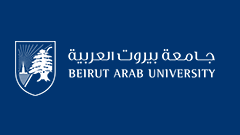Author ORCID Identifier
Nehmat Karim - https://orcid.org/0000-0001-5912-7805
Abstract
A news supplement produced by UNDP “Peace Building in Lebanon”, distributed along with An-Nahar newspaper had published in its December 2020 issue an article entitled “Urban Vacant Parcels as Opportunities to Reclaim Public Spaces in Times of Crises and Austerity” highlighting on the following: While Lebanon experiences a multiple crises and people are struggling more every day, solidarities are urgently needed and spaces where people can meet and connect would play a key role in this matter. Adding that Beirut, the capital, is considered a dense and rapidly urbanizing city, where shared spaces are scant, poorly designed, and ill managed. The current situation and stresses have contributed to the degradation of the urban environment and transformed neighborhoods in drastic ways at the expense of public life. However, the neighborhoods comprise a lot of vacant properties (built and inbuilt) includes public staircases, pedestrian alleys and building entrances neglected gardens and parks that holds a valuable opportunity for rethinking the public spaces. The aim of the study is developing design guidelines to obtain flexible open spaces and achieve urban resilience in densely populated areas using green technology. The main objective of the study is to enhance cities’ resilient factors through applying urban interventions into the public realm elements that contribute to achieving flexible open spaces, to identify the applicable green technologies that are most suitable for creating energy- producing open spaces in highly dense areas, and to achieve a balance between the aesthetic aspects of spaces and the needs and perceptions of residents using the participatory design approach. This paper is based on literature review, analytical quantitative study. In addition to a comparative analysis of international case studies done that helps in deducing the convenient tools that can be relied upon in the case of Beirut. The purpose of this paper is to emphasize that urban interventions based on modern technologies that are considered supporters to the urban lifestyle, i.e., green technology that involve: environmentally friendly, self-replenishing and non-polluting sources can work on stimulating the spatial practices and the public life through facilitating sustainable development for physically damaged congested – historic Beirut’s neighborhoods.
Keywords
Urban Resilience, Green Technology, Flexible Open Spaces, Renewable Resources, Energy Generation
Disciplines
Architecture | Engineering
Recommended Citation
Karim, Nehmat
(2022)
"DESIGNING FLEXIBLE OPEN SPACES WITH ENERGY EFFICIENT SOLUTIONS FOR A RESILIENT BEIRUT - CASE STUDY OF RMEIL MEDAWAR DISTRICT,"
Architecture and Planning Journal (APJ): Vol. 28:
Iss.
1, Article 8.
DOI: https://doi.org/10.54729/WHIT3423

